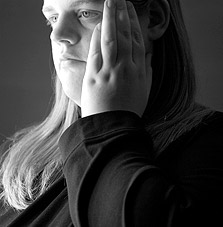
What is an MRI used to diagnose?
MRI scanning has been one of the biggest advances in medical science in the past 40 years and has revolutionised medicine. It uses magnetism and radio waves to create pictures of structures including soft tissue, bone, blood flow and organs within the human body.
The main advantages of MRI scans are that they can obtain these clear images without any invasive procedures, pain, or use of ionising radiation as x-rays and CT scans do.
MRI scans are a useful diagnostic tool for a whole range of medical conditions including those affecting soft tissue such as worn cartilage, ligament strains and tendonitis; as well as inflammation affecting joints and the spine not visible on an x-ray; cancerous tumours and cysts, assessment of blood vessels, the brain, and other organs such as the gallbladder and prostate.
Typical Symptoms
Medserena MRI scans
Medserena offers a premium service of specialist MRI scans for the spine, back, brain, limbs, abdomen, prostate, and pelvis. The scans are carried out by experienced qualified radiographers in a calm and relaxed atmosphere in spacious rooms.
The company’s scans are upright and open so that patients can be examined in a sitting or standing position rather than lying down in a flatbed MRI tunnel scanner. This makes them less intimidating for people who suffer from anxiety and claustrophobia about being in a small space.
Another advantage of an upright scan is that patients can be scanned in a weight-bearing position when their spine or joints are under the pressure of gravity. This gives a much more dynamic picture of what is happening internally and is particularly useful for investigating causes of back and joint pain.
Images can be acquired from multiple planes and angles without having to move the patients so it’s extremely convenient. MRI can be used to evaluate soft tissue in greater detail than a CT scan and therefore show the human body’s anatomy in clearer detail.
Location for Truly upright
MRI scans
Our scans can be performed in
London or Manchester
♡
From only
£240.00
Based on location and how soon
you need the scan
📅
Same day
appointments
Many MRI scans can be booked
for same day delivery
What is an MRI used to diagnose?
Here are some of the conditions that MRI scans can investigate, assess and diagnose:
- Soft tissue issues: These include sprains, tears, strains of soft tissue such as ligaments, cartilage in joints, tendons, and muscles, common in sports injuries. MRI gives such good quality contrast resolution that it is easier to differentiate between different types of tissue and make an accurate diagnosis.
- Spinal degeneration: MRI gives a clear picture not only of the spinal vertebrae that make up the spine, but all the soft tissue attached to it, helping to diagnose conditions such as thickened ligaments and inflammation of entheses, the sites where ligaments and tendons attach to the bone, as well as inflammatory arthritis changes such as ankylosing spondylitis, herniated discs and spinal stenosis narrowing). It also shows up changes in bone due to conditions such as osteoarthritis.
- Ehlers-Danlos Syndromes: This is an inherited connected tissue disorder which can cause joint hypermobility, stretchy skin, easy bruising, and wide scars. The condition makes joints hyper flexible and this can make them prone to dislocation, chronic pain and clicking.
- Cancerous tumours and cysts: MRI can also give clear images of cancer tumours and cysts without having to use radiation as x-rays and CT scans do.
- Gallstones, pancreatic and bile duct cancers: A Magnetic Resonance Cholangiopancreatography (MRCP) scan focuses specifically on the gallbladder, liver, bile ducts, pancreas, and pancreatic ducts. It is a non-invasive and safer alternative to an endoscopic retrograde cholangiopancreatography (ERCP), where a long flexible tube is inserted down the throat to take x-rays of the pancreas, gallbladder, and bile ducts. An MRCP scan can diagnose gallstones and bile ducts and pancreatic cancer.
- Brain disorders: A brain MRI scan can help you get answers for the causes of a range of neurological symptoms, including specific types of headache and hearing loss, weakness down the left side, numbness, double vision, confusion, memory loss and dizziness. An upright brain MRI scan can rule out or confirm possible causes for symptoms ranging from head injuries, stroke, brain tumours, meningitis, sinusitis, dementia, fluid build-up, multiple sclerosis, and concussion, plus ear, nose, and throat problems.
- Blocked arteries, clots, and stroke: A carotid magnetic resonance angiography MRI scan can give a detailed 3D view of the two carotid arteries on either side of the neck, the main blood vessels that deliver blood and oxygen to the head and brain. They supply the front part of the brain, which is the control centre for many important functions including speech, movement, and sensory feeling.
The main purpose of a carotid magnetic resonance MRA scan is to check for the build-up of fatty plaques or blood clots that can build up and cause blockages that put you at risk of a stroke or a mini stroke (known as a transient ischaemic attack (or TIA). MRI is an accurate imaging method for assessing the carotid arteries as it can measure vessel wall thickness.
Other benefits of a Medserena open MRI scan
Open MRI scanners are a stress-free alternative to using a conventional enclosed tunnel MRI scanner, providing comfort and reassurance for people who suffer from anxiety or claustrophobia. Sitting upright is more comfortable for patients and the open front means patients can speak to a friend or relative or watch television throughout as distraction.
Open MRI scans can also accommodate larger/ heavier patients who might have difficulty fitting comfortably into a conventional tunnel scanner, as they can take weights of up to 35 stone (226kg). However, suitability will depend on the patient’s build and the area of anatomy that needs to be scanned.
Satisfied Patient
Patient Care
At Medserena we take pride that every patient is provided with the premium quality they deserve with every private MRI scan.





